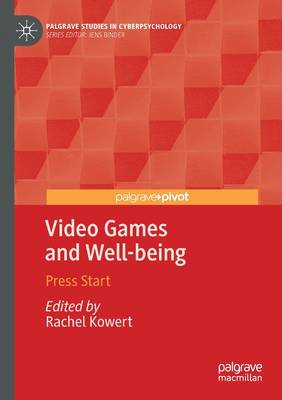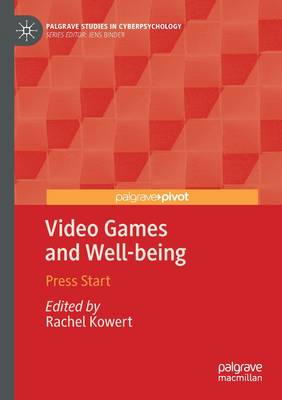
- Afhalen na 1 uur in een winkel met voorraad
- Gratis thuislevering in België vanaf € 30
- Ruim aanbod met 7 miljoen producten
- Afhalen na 1 uur in een winkel met voorraad
- Gratis thuislevering in België vanaf € 30
- Ruim aanbod met 7 miljoen producten
Zoeken
€ 58,45
+ 116 punten
Omschrijving
This book examines how video game mechanics and narratives can teach players skills associated with increased psychological well-being. It integrates research from psychology, education, ludology, media studies, and communication science to demonstrate how game play can teach skills that have long been associated with increased happiness and prolonged life satisfaction, including flexible thinking, openness to experience, self-care, a growth mindset, solution-focused thinking, mindfulness, persistence, self-discovery and resilience. The chapters in this volume are written by leading voices in the field of game studies, including researchers from academia, the video gaming industry, and mental health practitioners paving the way in the field of "geek therapy."
This book will advance our understanding of the potential of video games to increase our psychological well-being by helping to mitigate depression, anxiety, and stress and foster persistence, self-care, and resilience.
This book will advance our understanding of the potential of video games to increase our psychological well-being by helping to mitigate depression, anxiety, and stress and foster persistence, self-care, and resilience.
Specificaties
Betrokkenen
- Uitgeverij:
Inhoud
- Aantal bladzijden:
- 166
- Taal:
- Engels
- Reeks:
Eigenschappen
- Productcode (EAN):
- 9783030327729
- Verschijningsdatum:
- 19/12/2020
- Uitvoering:
- Paperback
- Formaat:
- Trade paperback (VS)
- Afmetingen:
- 148 mm x 210 mm
- Gewicht:
- 249 g

Alleen bij Standaard Boekhandel
+ 116 punten op je klantenkaart van Standaard Boekhandel
Beoordelingen
We publiceren alleen reviews die voldoen aan de voorwaarden voor reviews. Bekijk onze voorwaarden voor reviews.










